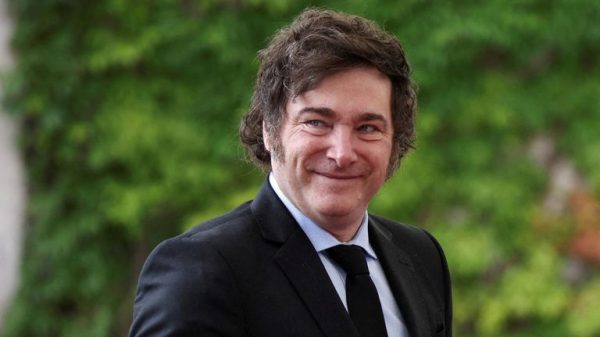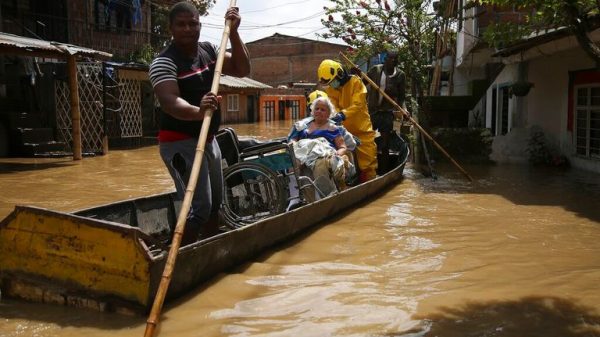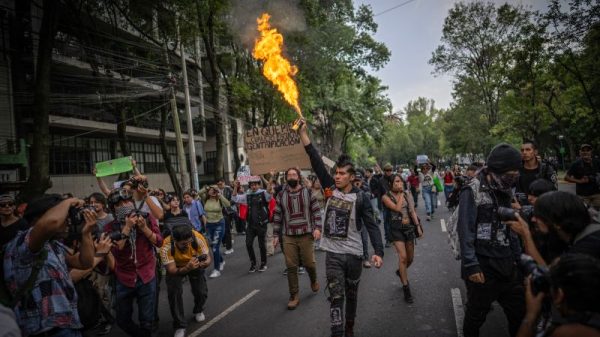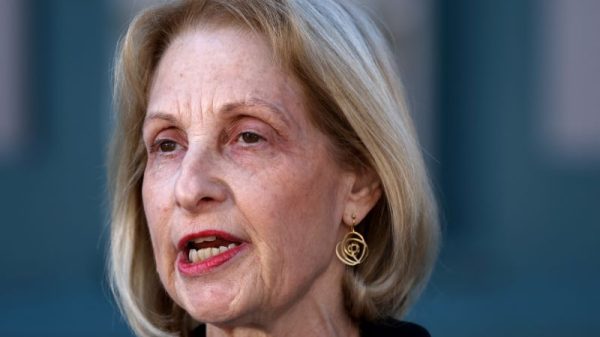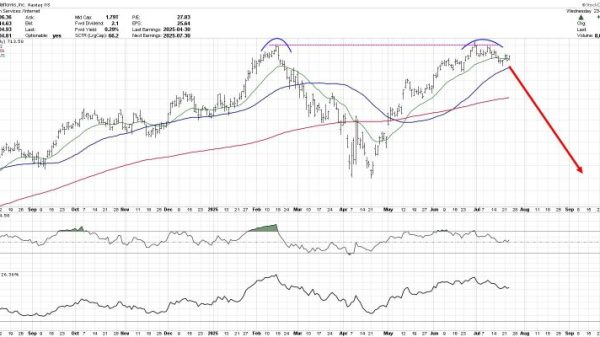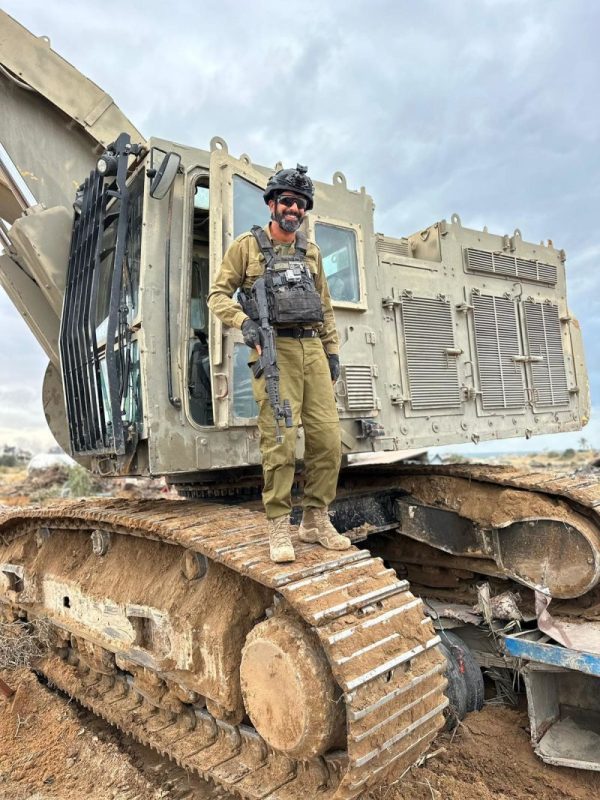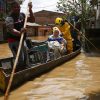Editor’s note: This story includes details about suicide that some readers may find upsetting.
A 40-year-old father of four, Eliran Mizrahi deployed to Gaza after the deadly Hamas-led attack on Israel on October 7, 2023.
“He got out of Gaza, but Gaza did not get out of him. And he died after it, because of the post-trauma,” his mother, Jenny Mizrahi, said.
The Israeli military has said it is providing care for thousands of soldiers who are suffering from PTSD or mental illnesses caused by trauma during the war. It is unclear how many have taken their own lives, as the Israel Defense Forces (IDF) has not provided an official figure.
One year on, Israel’s war in Gaza has killed more than 42,000 people, according to the health ministry in the strip, with the United Nations reporting that most of the dead are women and children.
The war, launched after Hamas killed 1,200 people and took more than 250 hostage, is already Israel’s longest since the Jewish state was established. And as it now expands to Lebanon, some soldiers say they dread being drafted into yet another conflict.
For many soldiers, the war in Gaza is a fight for Israel’s survival and must be won by any means. But the battle is also taking a mental toll that, due to stigma, is largely hidden from view. Interviews with Israeli soldiers, a medic, and the family of Mizrahi, the reservist who took his own life, provide a window into the psychological burden that the war is casting on Israeli society.
Bulldozing ‘terrorists, dead and alive’
Mizrahi deployed to Gaza on October 8 last year and was tasked with driving a D-9 bulldozer, a 62-ton armored vehicle that can withstand bullets and explosives.
The reservist spent 186 days in the enclave until he sustained injuries to his knee, followed by hearing damage in February when a rocket-propelled grenade (RPG) struck his vehicle, his family said. He was pulled out of Gaza for treatment, and in April was diagnosed with PTSD, receiving weekly talk therapy.
His treatment did not help.
“They didn’t know how to treat them (soldiers),” Jenny, who lives in the Israeli Ma’ale Adumim settlement, in the occupied West Bank, said. “They (soldiers) said the war was so different. They saw things that were never seen in Israel.”
When Mizrahi was on leave, he suffered from bouts of anger, sweating, insomnia and social withdrawal, his family said. He told his family that only those who were in Gaza with him could understand what he was going through.
Jenny wondered if her son killed someone and couldn’t handle it.
“He saw a lot of people die. Maybe he even killed someone. (But) we don’t teach our children to do things like this,” she said. “So, when he did this, something like this, maybe it was a shock for him.”
The former soldier has spoken publicly about the psychological trauma endured by Israeli troops in Gaza. In a testimony to the Knesset, Israel’s parliament, in June, Zaken said that on many occasions, soldiers had to “run over terrorists, dead and alive, in the hundreds.”
“Everything squirts out,” he added.
Zaken says he can no longer eat meat, as it reminds him of the gruesome scenes he witnessed from his bulldozer in Gaza, and struggles to sleep at night, the sound of explosions ringing in his head.
He maintains that the vast majority of those he encountered were “terrorists.”
“The civilians we saw, we stopped and brought them water to drink, and we let them eat from our food,” he recalled, adding that even in such situations, Hamas fighters would shoot at them.
“So, there is no such thing as citizens,” he said, referring to the ability of Hamas fighters to blend with civilians. “This is terrorism.”
There was a “very strong collective attitude” of distrust among Israeli soldiers toward the Palestinians in Gaza, especially at the outset of the war, the medic said.
There was a notion that Gazans, including civilians, “are bad, that they support Hamas, that they help Hamas, that they were hiding ammunition,” the medic said.
In the field, however, some of these attitudes changed “when you actually see Gazan civilians in front of your eyes,” they said.
The IDF has said that it does all it can to minimize civilian casualties in Gaza, including by sending text messages, making phone calls, and dropping evacuation leaflets to warn civilians ahead of attacks.
Despite this, civilians in Gaza have been repeatedly killed in large numbers, including when sheltering in areas the military itself has designated as “safe zones.”
The mental health toll in Gaza is likely to be enormous. Relief groups and the UN have repeatedly highlighted the catastrophic mental health consequences of the war on civilians in Gaza, many of whom had already been scarred by a 17-year blockade and several wars with Israel. In an August report, the UN said the experiences of Gazans defy “traditional biomedical definitions” of PTSD, “given that there is no ‘post’ in Gaza’s context.”
After Mizrahi took his own life, videos and photos surfaced on social media of the reservist bulldozing homes and buildings in Gaza and posing in front of vandalized structures. Some of the images, which were purportedly posted on his now removed social media accounts, appeared in a documentary that he was interviewed for on Israel’s Channel 13.
His sister, Shir, said she saw a lot of comments on social media accusing Mizrahi of being “a murderer,” cursing at him and replying with unpleasant emojis.
“It was hard,” she said, adding that she tried her best to overlook it. “I know he had a good heart.”
Clearing dead people with debris
Ahron Bregman, a political scientist at King’s College London who served in the Israeli army for six years, including during the 1982 Lebanon War, said the Gaza war is unlike any other fought by Israel.
“It’s very long,” he said, and it is urban, which means soldiers fight among many people, “the vast majority of them are civilians.”
For many, the transition from the battlefield back to civilian life can be overwhelming, especially after urban warfare that involves the deaths of women and children, Bregman said.
“How can you put your children to bed when, you know, you saw children killed in Gaza?”
Despite Mizrahi’s PTSD, his family said he agreed to return to Gaza when he was called up again. Two days before he was meant to re-deploy, he killed himself.
In her home, Jenny has dedicated a room to memorialize her late son, with photos from his childhood and working in construction. Among the objects his mother has kept was the cap Mizrahi was wearing when he shot himself in the head, the bullet holes clearly visible.
Mizrahi’s family started speaking out about his death after the IDF did not grant him a military burial, saying he had not been “in active reserve duty.” They later reversed their decision.
The Israeli newspaper Haaretz reported that 10 soldiers took their own lives between October 7 and May 11, according to military data obtained by the newspaper.
“The suicide rate in the army is more or less stable in the last five or six years,” Bechor said, noting that it has in fact been falling over the past 10 years.
Even if the number of suicides is higher, he said, the ratio so far “is quite the same from the previous year because we have more soldiers.”
Still, more than a third of those removed from combat are found to have mental health issues. In a statement in August, the Israeli defense ministry’s rehabilitation division said that every month, more than 1,000 new wounded soldiers are removed from fighting for treatment, 35% of whom complain about their mental state, with 27% developing “a mental reaction or post-traumatic stress disorder.”
It added that by the end of the year, 14,000 wounded fighters will likely be admitted for treatment, approximately 40% of whom are expected to face mental health issues.
How to get help
Help is available if you or someone you know is struggling with suicidal thoughts or mental health matters.
In the US: Call or text 988, the Suicide & Crisis Lifeline.
Globally: The International Association for Suicide Prevention and Befrienders Worldwide have contact information for crisis centers around the world.
More than 500 people die by suicide in Israel and over 6,000 others attempt suicide every year, according to the country’s ministry of health, which notes that “there is under-reporting of approximately 23% in the numbers mentioned.”
In 2021, suicide was the leading cause of death among IDF soldiers, the Times of Israel reported, citing military data that showed at least 11 soldiers had taken their own lives that year.
Earlier this year, the ministry of health sought to “debunk rumors of rising suicide rates since October 7,” saying that the reported cases are “isolated incidents in the media and in social media.” Without providing numbers, the ministry said that there was a “decrease in suicide in Israel between October and December in comparison with the same months in recent years.”
Bregman, the Lebanon war veteran, said that PTSD and other mental health issues are now easier to talk about than in the 1970s and 1980s thanks to the diminishing stigma. Still, he said, the soldiers coming out of Gaza will “carry (their experiences) for the rest of their lives.”
Normalizing the abnormal
Bechor, the IDF psychologist, said that one of the ways the military helps traumatized troops resume their lives is to try to “normalize” what they went through, partly by reminding them of the horrors committed on October 7.
“This situation is not normal for human beings,” Bechor said, adding that when soldiers come back from the battlefield with PTSD symptoms, they ask: “How do I get back home after what I saw? How do I get to engage with my kids after what I saw?”
For the tens of thousands of Israelis who volunteered or were called up to fight, the war in Gaza was seen not only seen as an act of self-defense but as an existential battle. That notion was touted by top Israeli political and military leaders, as well as Israel’s international allies.
Netanyahu has described Hamas as “the new Nazis” and US President Joe Biden has said that the “ancient hatred of Jews” endorsed by the Nazis was “brought back to life” on October 7.
The external threats to their country unified many Israelis, putting on hold domestic political squabbling that had for months divided society. Meanwhile, the suffering of Palestinians has largely been absent from Israeli television screens, which are dominated by news about the hostages in Gaza.
After the Hamas attacks, polls showed that most Israelis supported the war in Gaza, and did not want their government to halt the fighting even while negotiating to release the kidnapped hostages. On the one-year anniversary of the October 7 attack, a survey published by the Israel Democracy Institute found that only 6% of Israelis think the war in Gaza should be stopped due to the “the great cost in human life.”
Some soldiers, however, couldn’t rationalize the horrors they had seen.
When he returned from Gaza, Mizrahi often told his family that he felt “invisible blood” coming out of him, his mother said.
Shir, his sister, blames the war for her brother’s death. “Because of the army, because of this war, my brother is not here,” she said. “Maybe he didn’t die from a bullet (in combat) or an RPG, but he died from an invisible bullet,” she added, referring to his psychological pain.






